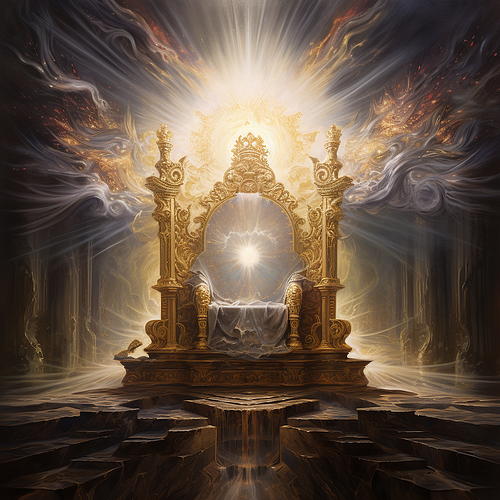 January 09: Psalms 19–21 — Reflections on God’s Glory, the Law, and Royal Trust
January 09: Psalms 19–21 — Reflections on God’s Glory, the Law, and Royal Trust
Exploring the Majesty of God and the King’s Victories in Psalms 19–21
 Introduction
Introduction
Dive into Psalms 19–21, where we encounter themes of God’s glory in creation, the perfection of His law, and expressions of royal trust and victory. These Psalms blend cosmic celebration with personal and communal prayers.
 Key Verse:
Key Verse:
“The heavens declare the glory of God; the skies proclaim the work of his hands.” — Psalm 19:1
“The king trusts in the LORD; through the unfailing love of the Most High he will not be shaken.” — Psalm 21:7
These verses highlight the omnipresence of God’s glory and the steadfast trust in His divine protection.
 Key Themes and Reflections:
Key Themes and Reflections:
- God’s Glory in Creation: Psalm 19 beautifully portrays the heavens as a testament to God’s handiwork, a theme that resonates with the awe of creation.
- The Law of the Lord: The Psalmist extols the virtues of God’s law, its perfection, and the wisdom it imparts.
- Royal Trust and Deliverance: Psalms 20 and 21 focus on the king, likely David, seeking and celebrating God’s guidance and victories in battle.
 Psalm 19: God’s Glory in Creation and the Law
Psalm 19: God’s Glory in Creation and the Law
Psalm 19 celebrates the heavens as a grand canvas displaying God’s glory, while the second part venerates the perfection and righteousness of God’s law.
 Hidden Gem:
Hidden Gem:
The transition from the majesty of the heavens to the perfection of the law in Psalm 19 suggests a holistic view of divine revelation, seen in both the natural world and the moral sphere.
 Psalms 20 and 21: Prayers for Victory and Thanksgiving
Psalms 20 and 21: Prayers for Victory and Thanksgiving
These Psalms are royal prayers — one for victory before battle (Psalm 20) and one giving thanks for triumph (Psalm 21). They showcase deep trust in God’s power and deliverance.
 Reflective Q&A:
Reflective Q&A:
![]() Psalm 19: God’s Glory in Creation and the Law:
Psalm 19: God’s Glory in Creation and the Law: ![]() The Heavens Speaking of God’s Glory: What does Psalm 19 teach us about perceiving God in the natural world? A: Psalm 19 encourages us to see God’s handiwork in the beauty and order of the natural world, reminding us of His omnipresence and the silent testimony of creation to His glory.
The Heavens Speaking of God’s Glory: What does Psalm 19 teach us about perceiving God in the natural world? A: Psalm 19 encourages us to see God’s handiwork in the beauty and order of the natural world, reminding us of His omnipresence and the silent testimony of creation to His glory.
![]() The Perfection of God’s Law: How does the Psalmist’s view of the law reflect its role in our spiritual lives? A: The Psalmist’s reverence for God’s law highlights its role as a source of truth, guidance, and wisdom, vital for spiritual growth and understanding God’s will.
The Perfection of God’s Law: How does the Psalmist’s view of the law reflect its role in our spiritual lives? A: The Psalmist’s reverence for God’s law highlights its role as a source of truth, guidance, and wisdom, vital for spiritual growth and understanding God’s will.
![]() Psalms 20 and 21: Royal Trust and Deliverance:
Psalms 20 and 21: Royal Trust and Deliverance: ![]() Seeking Divine Assistance: What can we learn from the prayers for victory in Psalm 20? A: Psalm 20’s focus on seeking God’s help in times of need teaches us about reliance on divine strength rather than human capabilities, emphasizing prayer and trust in God’s power.
Seeking Divine Assistance: What can we learn from the prayers for victory in Psalm 20? A: Psalm 20’s focus on seeking God’s help in times of need teaches us about reliance on divine strength rather than human capabilities, emphasizing prayer and trust in God’s power.
![]() Celebrating Divine Deliverance: How does Psalm 21 exemplify gratitude and trust in God? A: Psalm 21 exemplifies deep gratitude for God’s deliverance and blessings. It shows a heart of trust in God’s unfailing love and faithfulness, recognizing His role in granting victory and success.
Celebrating Divine Deliverance: How does Psalm 21 exemplify gratitude and trust in God? A: Psalm 21 exemplifies deep gratitude for God’s deliverance and blessings. It shows a heart of trust in God’s unfailing love and faithfulness, recognizing His role in granting victory and success.
 Join the Discussion:
Join the Discussion:
What insights do you gain from Psalms 19–21? How do these chapters shape your understanding of God’s presence in creation and the value of divine guidance and protection? Share your reflections in the comments below!
#Psalms19 #Psalms20 #Psalms21 #DivineGlory #RoyalTrust #BibleStudy #SpiritualJourney #PsalmReading
![]() See You Tomorrow in Psalms: Continue exploring the rich tapestry of the Psalms with us. Join our journey for deeper insights into these poetic expressions of faith and trust.
See You Tomorrow in Psalms: Continue exploring the rich tapestry of the Psalms with us. Join our journey for deeper insights into these poetic expressions of faith and trust.
 Join the Forum!
Join the Forum!
Engage deeply in biblical exploration with our AIgniteScripture Community. Join discussions, access unique resources, and connect with like-minded individuals:
Free Members: Participate in dynamic discussions and access a diverse range of biblical resources. Sign up here: AIgniteScripture Community
Supporters Membership: For $20/month or $200/year, gain personalized newsletters, exclusive access to advanced content, and more. Influence our content direction and engage in meaningful discussions. Join as a Supporter: Become a Supporter
![]() Stay Updated with the AIgniteScripture Newsletter: Don’t miss out on daily readings and unique AI-enhanced biblical insights. Subscribe to our newsletter for regular updates: Subscribe
Stay Updated with the AIgniteScripture Newsletter: Don’t miss out on daily readings and unique AI-enhanced biblical insights. Subscribe to our newsletter for regular updates: Subscribe
